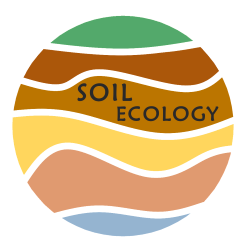| Nassal, D; Spohn, M; Eltlbany, N; Jacquiod, S; Smalla, K; Marhan, S; Kandeler, E: Effects of phosphorus-mobilizing bacteria on tomato growth and soil microbial activity, Plant and Soil, 427(1-2), 17-37 (2018), doi:10.1007/s11104-017-3528-y | |
| Abstract: Aims The aim of our study was to clarify whether inoculating a soil with Pseudomonas sp. RU47 (RU47) bacteria would stimulate the enzymatic cleavage of organic P compounds in the rhizosphere and bulk soil, promoting plant growth. Adding either viable or heat treated RU47 cells made it possible to separate direct from indirect effects of the inoculum on P cycling in soil and plants. Methods We performed a rhizobox experiment in the greenhouse with tomato plants (Solanum lycopersicum) under low P soil conditions. Three inoculation treatments were conducted, using unselectively grown soil bacteria (bacterial mix), heat treated (HTRU47) and viable RU47 (RU47) cells, and one not inoculated, optimally P-fertilized treatment. We verified plant growth, nutrient availability, enzyme activities and microbial community structure in soil. Results A plant growth promotion effect with improved P uptake was observed in both RU47 treatments. Inoculations of RU47 cells increased microbial phosphatase activity (PA) in the rhizosphere. Conclusions Plant growth promotion by RU47 cells is primarily associated with increased microbial PA in soil, while promotion of indigenous Pseudomonads as well as phytohormonal effects appear to be the dominant mechanisms when adding HT-RU47 cells. Thus, Powered by Editorial Manager® and ProduXion Manager® from Aries Systems Corporation using RU47 offers a promising approach for more efficient P fertilization in agriculture. |

